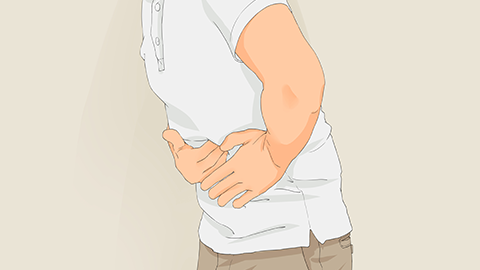What to do if you experience gastric bleeding from drinking alcohol
Generally, gastrointestinal bleeding after drinking alcohol may be caused by direct irritation of the gastric mucosa by alcohol, injury to the gastric mucosa from severe vomiting after drinking, acute gastritis, gastric ulcers, or esophageal varices. It is recommended to seek timely medical attention, identify the underlying cause, and then improve the condition under a doctor's guidance through general treatment, medication, surgical intervention, and other approaches. A detailed analysis is as follows:

1. Direct irritation of the gastric mucosa by alcohol: Alcohol can damage the gastric mucosal barrier, causing mucosal congestion, edema, and even bleeding, often presenting as minor bleeding. Immediately stop alcohol consumption, choose warm or cool liquid or semi-liquid food such as millet porridge, lotus root starch, etc., avoid spicy or excessively hot foods, and reduce the burden on the gastric mucosa.
2. Severe vomiting after drinking: The sudden increase in gastric pressure during vomiting may tear the gastric or esophageal mucosa, leading to bleeding, often accompanied by blood in the vomitus. After the vomiting stops, maintain rest and avoid further gastric irritation. Metoclopramide tablets may be used under medical advice to relieve nausea, while adequate hydration should be maintained to prevent dehydration.
3. Acute gastritis: Alcohol can cause acute inflammation of the gastric mucosa. As the inflammation worsens, it may lead to mucosal erosion and bleeding, possibly accompanied by stomach pain and nausea. Patients should follow their doctor's instructions to take medications such as omeprazole enteric-coated capsules, hydrotalcite chewable tablets, rebamipide tablets, etc., to suppress gastric acid secretion, protect the gastric mucosa, and promote mucosal healing.
4. Gastric ulcer: In individuals with existing gastric ulcers, alcohol can irritate the ulcer surface, causing deepening of the ulcer and rupture of blood vessels, leading to bleeding, often accompanied by black stool. Patients should follow their doctor's instructions to use medications such as rabeprazole sodium enteric-coated tablets, bismuth potassium citrate capsules, amoxicillin capsules, etc., to control inflammation and promote ulcer healing.
5. Esophageal and gastric varices: Patients with cirrhosis often have dilated esophageal and gastric varices, which are prone to rupture due to alcohol irritation, causing massive bleeding and hematemesis. Immediate medical attention is required, and endoscopic variceal ligation may be necessary to stop the bleeding by ligating the varices. Additionally, somatostatin injection may be used under medical guidance to reduce visceral blood flow.
In daily life, it is important to control alcohol intake and avoid drinking on an empty stomach. Eating适量 food before drinking can help protect the gastric mucosa. Maintain a regular diet, avoid overeating, reduce gastric irritation, and promote overall gastric health.






